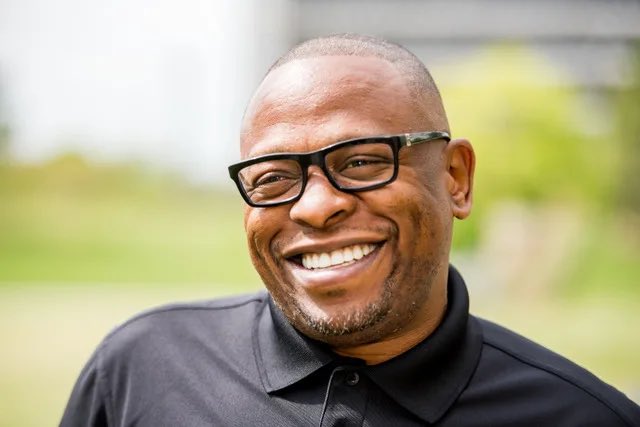It’s the day before the 2008 VH1 Hip Hop Honors and Brad Jordan, who is set to perform a tribute to legendary musician Isaac Hayes at the event, is hanging out in an Atlantic Records recording studio, playing the guitar backwards.
He’s a lefty, and there were no left-handed guitars on deck when he got the urge to play, so undeterred, he flipped the guitar around and played that way. He shrugs when asked about it, grinning before refocusing on the instrument.
It’s a calm moment for the artist known to the music world as Scarface. He finds solace in the guitar (his musician uncles taught him to play when he was a boy), and its welcome distraction as he gives his umpteenth interview about his pending album, 2008’s Emeritus. The album is a big deal. Just six years earlier, in 2002 he released what’s regarded as possibly his best work, The Fix. The album was made during his five-year tenure as president of Def Jam South (he held the post from 2000-2005), signing Atlanta-based rapper Ludacris, who’d go on to sell millions of records.
In 2008, he was basking in the unadulterated respect that he’d been due for years, as a rapper and musician, as evidenced by his VH1 Hip Honors appearance. He was finally being recognized as one of the best to ever do it, with the influence and discography to back it up.
Fast forward more than 10 years since he sat in the NYC studio, playing the guitar backward, and Face’s legacy has not only remained unshaken but grown stronger. His influence extends beyond the cliche label of being “your favorite rapper’s favorite rapper.” He isn’t just the blueprint for vulnerable rap penned by emcees who wrestle with internal demons, grapple with the afterlife, and pontificate on their place in a corrupt, racist world, a sound made popular by rappers like Tupac, Kid Cudi, Kanye West, Mac Miller, and Kendrick Lamar. His lyricism isn’t just the cornerstone for street rap laced with perspective, deep self-awareness and introspection, themes later explored by rappers like Jay-Z, Nas, T.I., and Rick Ross. And he’s more than the guitar-licked blues sound that defined 90s southern hip-hop and laid a musical foundation for what the region would birth next.
Scarface is all of those things.
He encompasses the best parts of hip hop by simply uncompromisingly being himself. His long discography began with his first outing with the Geto Boys in 1989 and winds its way through the years until his most recent release, 2015’s Deeply Rooted. When all is said, Scarface probably has the strongest discography in rap history, and one of the best in music. It features three agreed-upon classics: Mr. Scarface Is Back, The Diary, and The Fix, with genre and legacy-defining albums in-between, including The Untouchable and Emeritus. And that isn’t even touching his work with Geto Boys, whose discography includes one of the best group albums in rap, 1995’s The Resurrection.
A Houston native, Scarface grew up around musicians, and listened to classic rock and blues. He says his uncles would often gather in his living room in the city’s South Acres area, and have jam sessions, which he witnessed and later joined.
Scarface’s guitar-skills were later used on his own records, most of which he either produced or co-produced alongside frequent collaborators, Houston native Mike Dean and New Orleans’ N.O. Joe. It isn’t talked about a lot, but the live instrumentation in his music, is a marker for Face’s sound, adding a level of soul and depth.
In the 80s, after releasing music around Houston under his first moniker, DJ Akshen, Scarface signed to J. Prince’s Rap-A-Lot Records and joined Geto Boys when the group’s two original members were replaced. In 1989, the Geto Boys released Grip It! On That Other Level, an album that helped define Houston’s sound, and that of the South as a whole. It also served as a blueprint for street rap across the board, and has since been revered as a classic outing (the album was later remixed by Rick Rubin for the Geto Boys re-release album).
But Scarface’s fame shot to another level when he dropped his solo debut, Mr. Scarface Is Back, widely considered one of the best solo debuts in rap history.







 but not Face
but not Face
